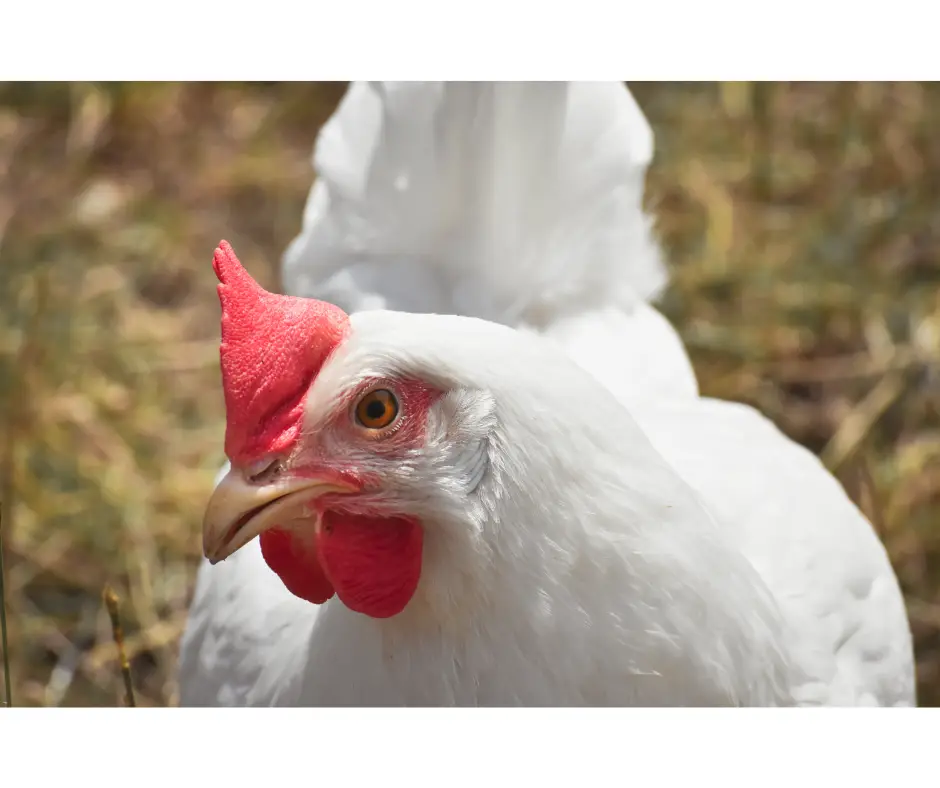Share via:
Green Diarrhea in Chickens: What It Means and How to Help
- Summary
- Deep Dive
- FAQs

-
-
-
Summary
Green diarrhea in chickens is often a sign of dietary imbalances, infections, parasites, stress, or exposure to toxins. While it may be caused by harmless factors like eating too many greens, it can also signal serious issues like bird flu or Newcastle disease. Prevention involves providing a balanced diet, maintaining clean coops, vaccinating, and managing stress. Treatment depends on the cause and may include dietary changes, medications, and supportive care. Monitoring your flock and seeking veterinary advice for persistent or severe symptoms are key to keeping your chickens healthy.
Keep reading for a deeper dive and FAQs.
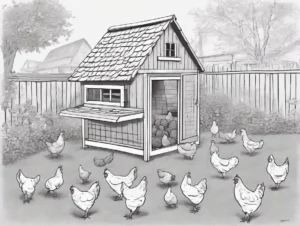
Why Do Chickens Get Green Diarrhea?
Green diarrhea can happen for several reasons. Here are the main ones:
- What They Eat
- Too Many Greens: If chickens eat a lot of leafy greens or grass, their poop might turn green. This usually isn’t dangerous but shows they need a more balanced diet.
- New Feed: Changing their food quickly can upset their stomachs and cause green poop.
- Sickness
- Bird Flu (Avian Influenza): This serious illness can cause green diarrhea, breathing problems, and tired chickens.
- Newcastle Disease: This disease can make poop green and cause other problems like trouble walking or breathing.
- Bacteria: Germs like Salmonella or E. coli can upset chickens’ stomachs and cause green diarrhea.
- Parasites
- Worms or tiny parasites like coccidia can irritate the gut and cause greenish poop.
- Stress or Environment
- Hot Weather: Too much heat can make chickens dehydrated and cause diarrhea.
- Dirty Coops: Crowded or dirty living spaces can make chickens stressed and sick.
- Poisons or Bad Food
- Eating moldy food, pesticides, or other harmful things can mess up digestion and lead to green poop.
- Eating moldy food, pesticides, or other harmful things can mess up digestion and lead to green poop.
How to Figure Out What’s Wrong
If your chickens have green diarrhea, here’s what to do:
- Look for Other Symptoms: Are they tired, not eating, losing weight, or having trouble breathing?
- Check Their Coop: Is it clean and safe? Are they eating the right food?
- Call a Vet: If it doesn’t go away or seems serious, a vet can run tests to find out what’s wrong.
How to Prevent Green Diarrhea in Chickens
Keeping your chickens healthy can stop problems before they start. Here’s how:
- Healthy Food
- Feed them a balanced diet with the right nutrients.
- Don’t change their food suddenly. Add new foods slowly.
- Clean Living Spaces
- Clean the coop often to stop germs and parasites from spreading.
- Make sure there’s enough space and good airflow in the coop.
- Stop Parasites
- Use medicines for worms or coccidia if needed.
- Check your chickens for signs of parasites regularly.
- Vaccinate and Protect
- Vaccinate for common diseases like bird flu and Newcastle.
- Keep wild birds away from your flock to avoid spreading diseases.
- Keep Them Hydrated and Calm
- Always give them fresh water.
- Reduce stress from things like predators, heat, or overcrowding.
How to Treat Green Diarrhea in Chickens
The treatment depends on the cause. Here are some common solutions:
- Change Their Diet
- Cut back on greens or grass for a while.
- Feed them simple, gentle foods like boiled rice or soft feed.
- Medicines
- Use antibiotics or antifungal medicine for infections (if a vet says so).
- Give anti-parasite medicine for worms or coccidia.
- Extra Care
- Keep sick chickens away from the others to stop the spread of disease.
- Give vitamins or electrolytes to help them recover.
- Vet Help
- For serious illnesses like bird flu or Newcastle, follow your vet’s instructions. You might also need to tell local authorities about these diseases.
- For serious illnesses like bird flu or Newcastle, follow your vet’s instructions. You might also need to tell local authorities about these diseases.
Final Thoughts
Green diarrhea in chickens is usually a symptom of another issue. By learning what causes it, keeping their living space clean, and giving them a good diet, you can keep your chickens healthy. Watch your flock closely and act quickly if something seems wrong—it’s the best way to prevent and solve problems.

-
-
-
Green Diarrhea in Chickens FAQ
Green diarrhea in chickens can be concerning for poultry keepers, as it often indicates an underlying health or dietary issue. Below, we address frequently asked questions to help you understand and manage this condition.
What Causes Green Diarrhea in Chickens?
Green diarrhea can result from a variety of causes, including:
- Dietary Changes: Chickens that eat a diet high in green plant material, such as grass or leafy vegetables, may produce green droppings.
- Parasites: Intestinal parasites, such as coccidia or worms, can disrupt normal digestion and lead to diarrhea.
- Bacterial or Viral Infections: Diseases such as salmonella or Newcastle disease may cause green, watery droppings.
- Stress: Environmental stressors, like overcrowding or sudden changes in temperature, can upset a chicken’s digestive system.
- Toxins or Spoiled Feed: Consuming moldy or toxic food can lead to abnormal droppings.
- Liver Issues: A malfunctioning liver may result in bile pigments turning droppings green.
Is Green Diarrhea Always a Cause for Alarm?
Not necessarily. If the chicken appears otherwise healthy, active, and is eating and drinking normally, the green diarrhea might be due to diet. However, persistent or severe diarrhea accompanied by lethargy, weight loss, or reduced egg production warrants further investigation.
How Can I Determine the Cause?
- Observe Other Symptoms: Look for signs of illness, such as lethargy, reduced appetite, coughing, or abnormal posture.
- Examine Their Diet: Check if they’ve had access to large amounts of green plants or spoiled feed.
- Inspect the Flock’s Environment: Ensure the coop is clean and free from moldy food or standing water.
- Consult a Veterinarian: A vet can perform fecal tests to check for parasites or infections.
How Should I Treat Green Diarrhea in Chickens?
Treatment depends on the underlying cause:
- Dietary Adjustments: If the green droppings are linked to diet, balance their feed with a high-quality commercial poultry ration.
- Parasite Control: Administer appropriate dewormers or anti-coccidial medications, as recommended by a veterinarian.
- Clean Environment: Regularly clean the coop and water sources to prevent disease and toxin exposure.
- Hydration: Provide fresh, clean water with electrolytes to combat dehydration caused by diarrhea.
- Antibiotics: For bacterial infections, a veterinarian may prescribe antibiotics.
How Can I Prevent Green Diarrhea?
- Maintain a Balanced Diet: Feed your flock a high-quality, nutritionally complete feed.
- Implement Regular Parasite Control: Use preventive measures, such as deworming schedules and keeping the coop clean.
- Provide Fresh Water: Ensure constant access to clean water to support digestion and overall health.
- Monitor the Flock: Regularly check your chickens for signs of illness or unusual behavior.
- Vaccinate: Protect against common diseases by keeping vaccinations up to date.
When Should I Call a Veterinarian?
You should contact a veterinarian if:
- The green diarrhea persists for more than 48 hours.
- Other symptoms, such as lethargy, feather loss, or coughing, are present.
- Multiple chickens in the flock are affected.
- You suspect exposure to toxins or a severe infectious disease.
Conclusion
Green diarrhea in chickens can range from harmless dietary changes to signs of serious illness. Observing your flock, maintaining proper husbandry, and consulting a veterinarian when necessary are key to ensuring their health and well-being.
Related Posts
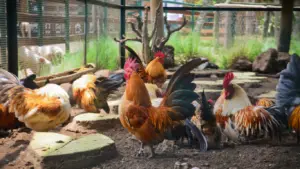
Chicken Coop Ventilation – How Much Do You Need?
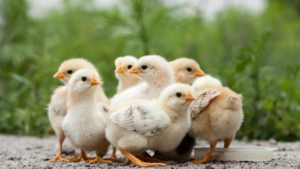
How to Build a Chicken Coop Door
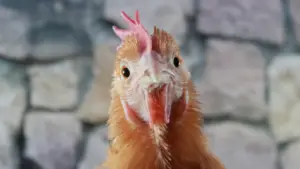
Understanding Diarrhea in Chickens: What You Need to Know
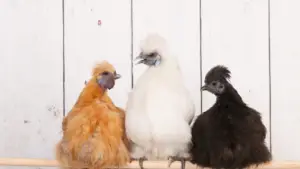
Does My Chicken Have Ascites or Egg Binding?
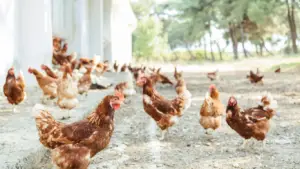
How to Build a Chicken Coop
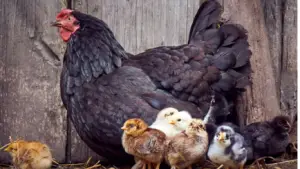
Backyard Chickens in the Winter
Share via:
